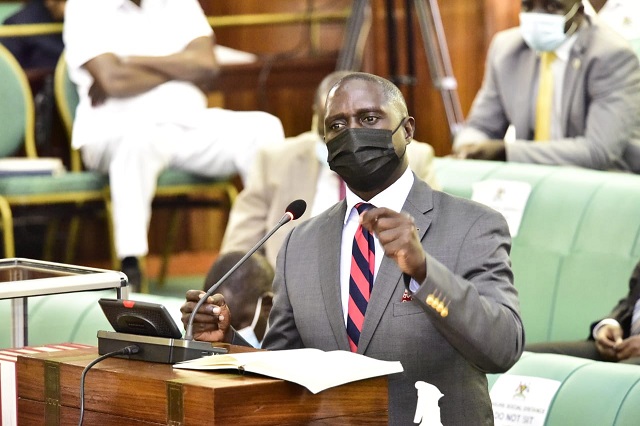
Kampala, Uganda | THE INDEPENDENT | The high costs of essential household commodities are worrying and Members of Parliament want government to take action and stall rising prices.
Kampala Central Member of Parliament, Mohammed Nsereko said the concerns of high fuel prices have now shifted to the increased prices of soap, detergents and sugar among other household commodities.
He said that that a bar of soap has increased to shs9000 with sugar surpassing it’s normal market price.
“When we talked of fuel prices, government assured us of a comprehensive report on monitoring mechanisms that will deter fuel dealers from hiking the prices. It is a month now but we do not see any change,” Nsereko said.
Nsereko added that much as the price of household commodities is going up, the remuneration of workers like teachers has not improved.
He tasked the Ministry of Finance to tell the country what plans it has for the short run to check on these soaring prices.
“Aware that people are struggling with loan payments, what is government doing to address this issue of inflation on basic commodities? Do we reduce the taxes?” Nsereko asked.
Tororo District Woman MP, Sarah Opendi said the Uganda Bureau of Statistics indicated that prices of soap and other detergent had gone up by 85 percent.
She added that some manufacturers of these products blame government for imposing an import duty on the raw materials used to produce soap and detergents at 10 percent where there was previously no tax on such materials.
“Some experts say that the crude oil we have in Uganda is not sufficient enough to facilitate soap production. The Finance Minister should tell us what we can do, should we do away with import duty?” queried Opendi.
Maurice Kibalya, Bugaluba County South MP said farmers in rural areas are failing to progress effectively due to taxes on agricultural inputs.
“We have a policy that agricultural inputs are not taxed but we have seen the price of fertilizers multiply by four. DAP used for maize was at shs1000 but is now at shs6000,” Kibalya said.
Cecilia Ogwal, Dokolo District MP recommended that Parliament’s Committees of Trade and Finance engage its experts to analyze the causes of inflation and guide the House and Government accordingly.
The Shadow Minister for Finance, Muwanga Kivumbi tasked the Ministry of Finance to avail information to Parliament on how a stimulus package from the International Monetary Fund (IMF) was used.
He also told House that government acquired a loan of US$1 billion from the IMF and that US$280 million has already been disbursed.
“IMF availed resources to help world economies deal with the after effects of the Covid-19 pandemic. We must ask the Finance Minister how they applied the stimulus money they received,” Muwanga Kivumbi said adding that, ’let the Finance Ministry detail which company, agency or department has absorbed the money we borrowed’.
State Minister for Finance, Henry Musasizi asked the House to grant him time to analyze the issue of inflation with technical officials and present a comprehensive statement on the matter.
“It is true that the lowest end of the population is finding it hard to access essential commodities because of the abrupt rise in their general price levels. But I need to show you clearly whether the impact of taxes is causing prices to rise,” said Musasizi.
He added that the ministry has been reducing the Central Bank Lending Rate (CBR) to the lowest rates which is now at six per cent but interest rates have kept rising.
Deputy Speaker, Anita Among tasked the minister to act on the matter with urgency saying the analysis of the problem is necessary but must be expedited.
She asked the minister to also report on the status of implementation of recommendations of Parliament’s Trade Committee on high prices of fuel.
*****
SOURCE: UGANDA PARLIAMENT MEDIA
 The Independent Uganda: You get the Truth we Pay the Price
The Independent Uganda: You get the Truth we Pay the Price



